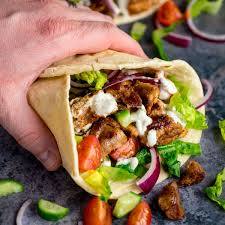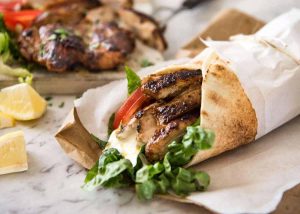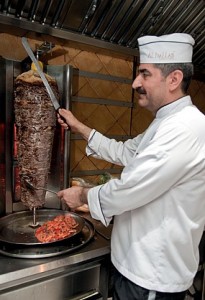Seven people were arrested in relation to the second mass food poisoning incident in Ain al-Basha.
 The owner of the restaurant and six of his employees were charged with four offences — causing harm, handling food in unsuitable conditions that made it harmful to human health, handling food that is not safe for human consumption and practicing a craft that causes harm.
The owner of the restaurant and six of his employees were charged with four offences — causing harm, handling food in unsuitable conditions that made it harmful to human health, handling food that is not safe for human consumption and practicing a craft that causes harm.
The seven individuals will be detained for one week at Al-Balqa Reform and Rehabilitation Center (nice name — dp).
The death of a forty-year-old man, two days after the death of a child, after more than 800 people were exposed to food poisoning for eating contaminatedShawarma meals from a restaurant in the Al-Baqa’a area, northwest of Amman.
The official “Kingdom” television quoted the Minister of Health, Saad Jaber, as announcing the ministry’s registration, “a second death from the mass poisoning incident in al-Baq’a.”
The Ministry of Health announced in a statement last Wednesday that a 5-year-old child had died in hospital due to food poisoning.
“The laboratory tests … showed the presence of bacterial contamination in meat and chicken with the ‘Intercoxis Vials’ and’ Campylobacter” bacterium, “the ministry said.
And the official “Kingdom” television quoted the assistant secretary general for primary health care in the ministry, Adnan Ishaq, as saying that “the failure to cool poultry has spoiled the food and caused poisoning.”



